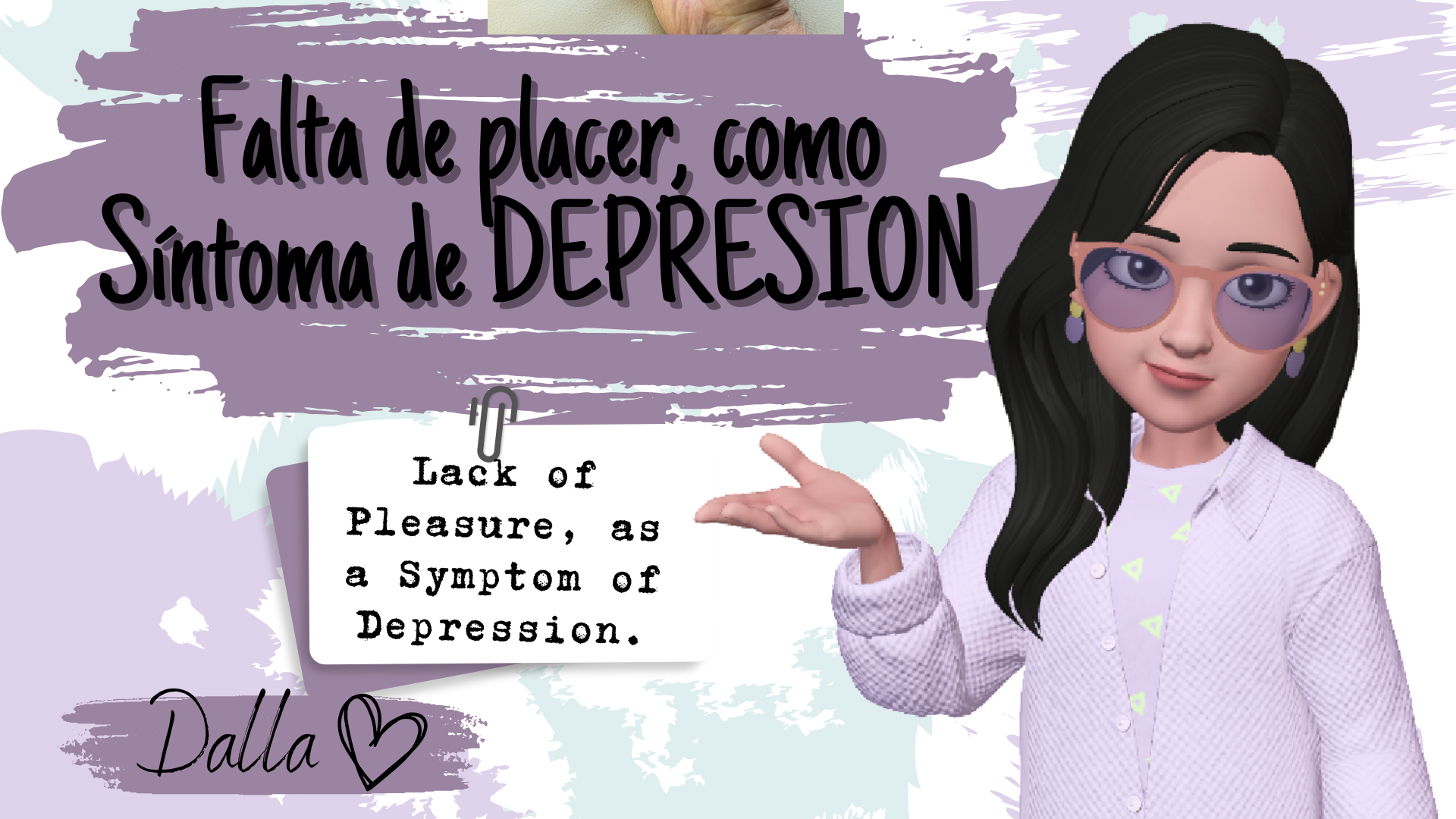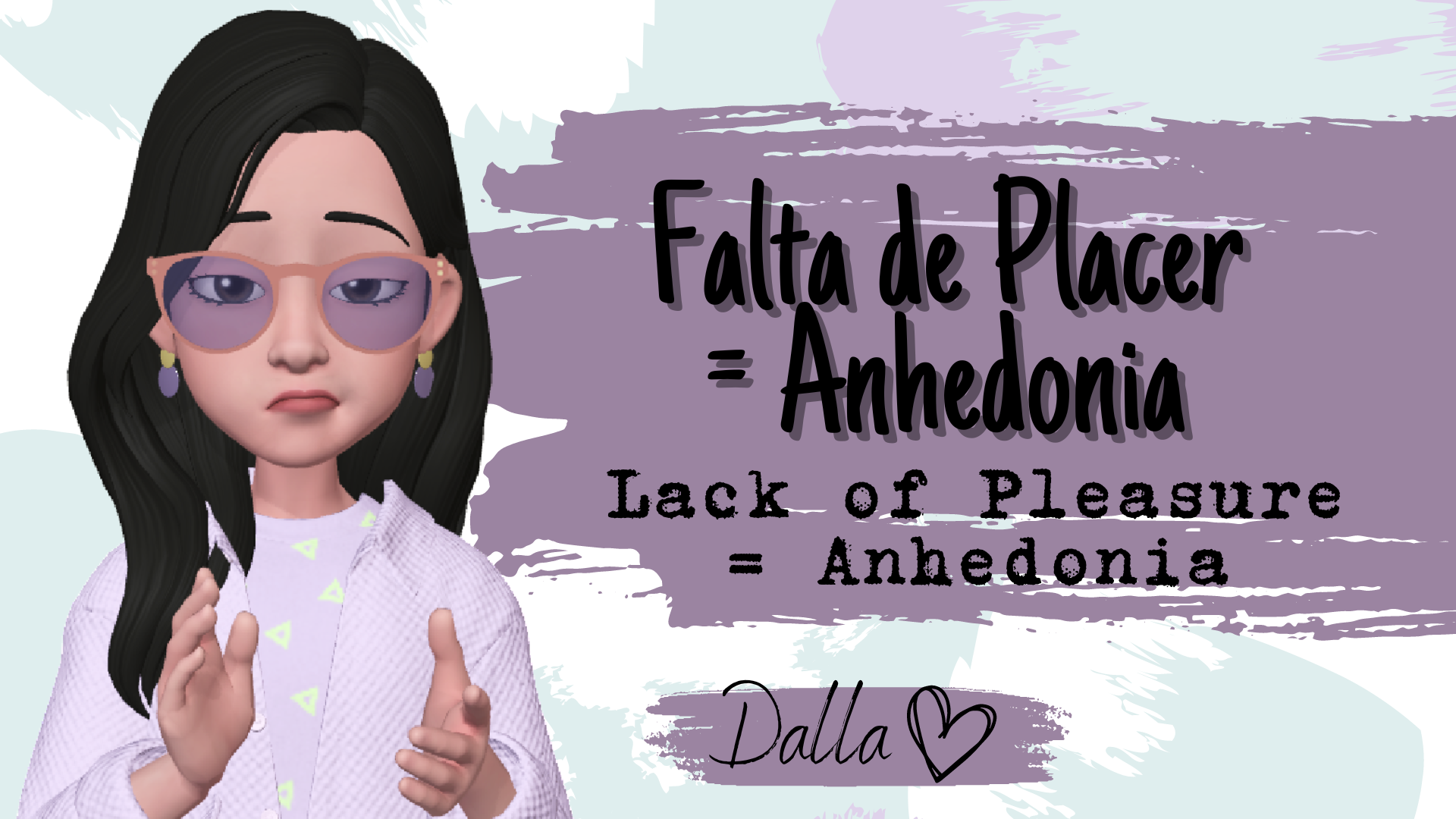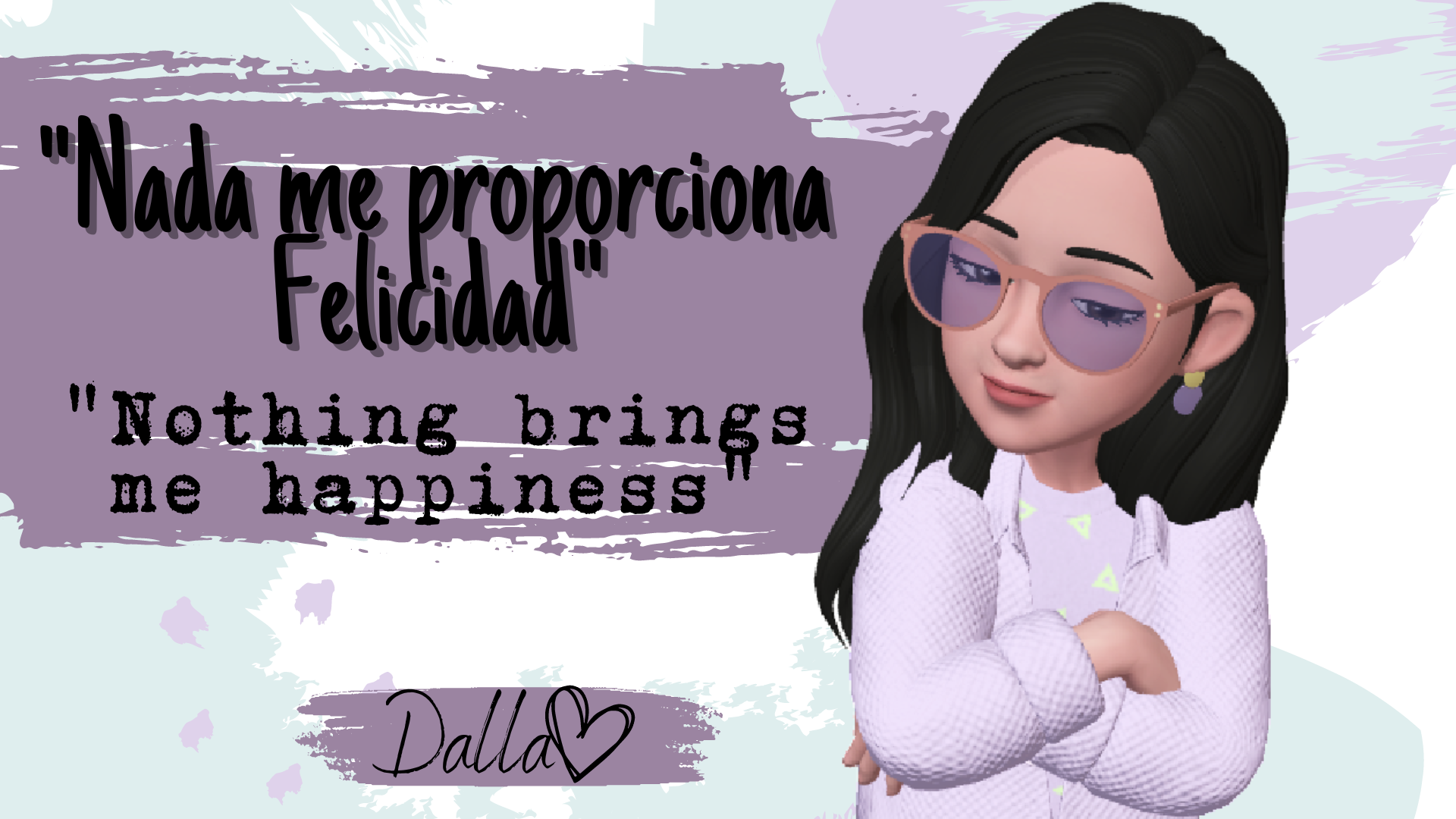Falta de Placer como Síntoma de Depresión


¡Saludos mis queridos lectores de Hive! el día de hoy en mis post Psicoeducativos, vengo a hablarles de un síntoma frecuente encontrado en la Depresión, que es la incapacidad para sentir placer, es decir, lo que en medicina y psicología conocemos como "Anhedonia".
La Anhedonia, es un síntoma habitual en un grupo bastante amplio de Enfermedades Mentales, no solo la Depresión, por eso, cuando está presente, es sinónimo de que debemos buscar alguna razón del por qué la persona está empezando a sentirla.
Es decir, si vemos que una persona acostumbraba a realizar algún tipo de actividad física, manual, cultural, religiosa, etc y de repente no quiere saber nada de ese conjunto de actividades, abandona todas las salidas y se aleja de su grupo de amistades con las cuales acostumbraba a compartir, es importante indagar en las razones.
Es muy frecuente este síntoma en la Depresión, más no indica que cuando está presente siempre habla de ella, es decir, es habitual que la persona que cursa con un Trastorno Depresivo abandone sus actividades habituales, porque ya no le generan el mismo placer que anteriormente le causaban.
**Greetings my dear readers of Hive! Today in my Psychoeducational posts, I come to talk to you about a frequent symptom found in Depression, which is the inability to feel pleasure, that is, what in medicine and psychology we know as "Anhedonia".
The Anhedonia, is a common symptom in a fairly broad group of Mental Illnesses, not only Depression, so when it is present, it is synonymous that we must look for some reason why the person is beginning to feel it.
That is to say, if we see that a person used to do some kind of physical, manual, cultural, religious activity, etc. and suddenly does not want to know anything about that set of activities, abandons all outings and moves away from his group of friends with whom he used to share, it is important to investigate the reasons.
This symptom is very frequent in Depression, but it does not indicate that when it is present he always talks about it, that is to say, it is habitual that the person who suffers from Depressive Disorder abandons his habitual activities, because they no longer generate the same pleasure that previously they caused him.



El buscar placer es una necesidad básica de todo ser humano, es algo instintivo, forma parte de nuestro cerebro primitivo, todos tendemos a orientarnos a realizar determinadas actividades para conseguir sentirnos bien y liberar nuestros neurotransmisores de la felicidad.
Cuando tenemos una enfermedad que desregula nuestros neurotransmisores, como es el caso de la Depresión, puede ocurrir que ese placer, que anteriormente encontrábamos realizando determinada actividad, de repente ya no lo sintamos, los neurotransmisores no se liberan lo suficiente o, se liberan, pero no se reabsorben como deben, por lo que perdemos el interés.
También es importante que comprendan las diferencias, ya que esa sensación de placer puede desaparecer y no necesariamente signifique que algo está mal en nosotros, puede ocurrir que llegue un punto en el que no nos sintamos igual que al principio, es normal cuando algo se vuelve costumbre y no sintamos la misma motivación que al principio, será la disciplina y la constancia la que nos mantendrán realizando determinada actividad y no necesariamente la presencia del placer constantemente.
Puede ocurrir también, que perdamos el interés en realizar una determinada actividad porque nuestros gustos cambiaron, porque maduramos, porque nos volvimos más introvertidos o extrovertidos, etc, lo que va a diferenciar ese cambio, del que ocurre cuando tenemos un verdadero problema emocional, es que este esté presente en absolutamente todas las actividades.
Seeking pleasure is a basic need of every human being, it is instinctive, it is part of our primitive brain, we all tend to orient ourselves to perform certain activities to get to feel good and release our neurotransmitters of happiness.
When we have a disease that deregulates our neurotransmitters, as is the case of Depression, it can happen that the pleasure that we previously found doing certain activity, suddenly we no longer feel it, the neurotransmitters are not released enough or are released, but are not reabsorbed as they should, so we lose interest.
It is also important to understand the differences, since that feeling of pleasure can disappear and not necessarily mean that something is wrong with us, it may happen that there comes a point where we do not feel the same as at the beginning, it is normal when something becomes a habit and we do not feel the same motivation as at the beginning, it will be the discipline and perseverance that will keep us doing certain activity and not necessarily the presence of pleasure constantly.
It can also happen that we lose interest in doing a certain activity because our tastes have changed, because we have matured, because we have become more introverted or extroverted, etc. What will differentiate this change, from what happens when we have a real emotional problem, is that it is present in absolutely all activities.



Es común en un Trastorno Depresivo, que la persona no sienta felicidad con nada de lo que antes le causaba esta emoción, es ahí cuando deben encender nuestras alarmas de que algo está mal.
Son este el tipo de cambios que muchas veces pasan desapercibidos en las personas, de las que nos enteramos demasiado tarde, que estaban pasando por un episodio Depresivo, se encierran en sí mismos, se aíslan y no buscan ayuda de nadie. Son éstos signos de las que debemos estar atentos.
También es importante que sepan, que es común que al inicio de algún tratamiento farmacológico contra los trastornos mentales, puedas sentirte así y no necesariamente quiere decir que estás mal, solo está empezando tu proceso de búsqueda de tu estabilidad, ese interés volverá, solo debemos tener paciencia y seguir las recomendaciones de quienes saben sobre el tema.
Mi recomendación final para quienes me leen, si conocen alguna persona a la que le tengan aprecio y sienten que está teniendo este síntoma, muéstrense interesados en ellos, díganles que están para ellos y, si está en sus posibilidades, acompáñenlo en sus terapias y en el inicio del tratamiento, créanme si todos hacemos nuestra parte, el día de mañana podríamos ser cada uno de nosotros los salvavidas de muchas vidas por ahí, que sufren en silencio de una Enfermedad Mental.
It is common in a Depressive Disorder, that the person does not feel happiness with anything that previously caused this emotion, that is when our alarms should turn on that something is wrong.
These are the kind of changes that often go unnoticed in people, that we find out too late, that they were going through a depressive episode, they withdraw into themselves, isolate themselves and do not seek help from anyone. It is these signs that we should be aware of.
It is also important to know that it is common that at the beginning of some pharmacological treatment against mental disorders, you may feel this way and it does not necessarily mean that you are bad, you are just starting your process of finding your stability, that interest will return, we just have to be patient and follow the recommendations of those who know about the subject.
My final recommendation for those who read me, if you know someone you care about and you feel they are having this symptom, show interest in them, tell them that you are there for them and, if it is in your possibilities, accompany them in their therapies and in the beginning of the treatment, believe me if we all do our part, tomorrow we could be each one of us the saviors of many lives out there, who suffer in silence from a Mental Illness.



DeepL
|Twitter X|
